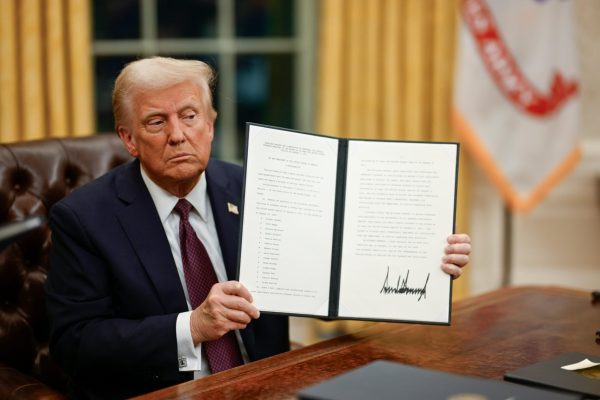ChatGPT: What Does It Mean For Us?
The emergence of ChatGPT, the chatbot launched by OpenAI in November, has quickly created problems for the world of academia. From students to faculty, no one is quite sure how it will impact education at every level in the coming years.
ChatGPT is a probability-based generative language model that makes use of machine learning by ‘learning’ words and then predicting a sensical sequence of words it has derived from the large amounts of data that it has access to. ChatGPT is the newest and most improved conversation-based program from Open AI’s family of language based models such as InstructGPT and GPT-3.
Artificial Intelligence is a branch of computer science that deals with building machines or programs capable of displaying human capabilities. In simple terms, AI is the ability of a computer to think and learn, which is just what ChatGPT does. ChatGPT is trained on large amounts of data written by humans, and through a reinforcement learning feedback loop, grasps how to respond with human-like answers.
What does ChatGPT mean for Dickinson? Given that this is a program exhibiting high human-like levels of intelligence, the question comes as to whether it comes under the term of plagiarism, and how Dickinsonians should go about it. John MacCormick, Professor of Computer Science, who has published several books and many articles about computation and algorithms said, “It’s more impressive than what I’ve seen before.”
When asked how he perceived students taking external help from ChatGPT for his classes, he said, “You can seek help from a friend or ChatGPT, as long as you destroy the help you got and recreate the solution with your own understanding, that’s what matters.” He went on to say, “It should be treated as a source and should be cited appropriately with certain types of assignments.” Overall, he believes it is a helpful tool as long as it is used intelligently and with restraints.
When asked whether he thought it was a threatening technology, he said, “When calculators were invented, people thought it would replace their jobs — that didn’t happen.” He did however mention that at the moment, he will be advising his students not to rely on the program.
Eren Bilen, Assistant Professor of Data Analytics, has done research related to cheating in schools, said “It is a very big achievement technologically.” When asked whether he was worried his students would make use of ChatGPT, he responded by saying “It depends on the kind of student, I would not be worried for a student that relies heavily on external help as you can identify when the functionality isn’t right and it’s just copied.” He even went on to say, “OpenAI has made a detector for ChatGPT itself, which works pretty good, so I’m not worried.”
Professor Bilen believes that ChatGPT is almost like a “tutor,” and that whether or not its use should be restricted would depend on how the instructor views ChatGPT and how they want it to be used for their courses. He also found it imperative to mention, “When allowed to use it, my advice would be to always be skeptical about the results it’s giving you.”
While ChatGPT is becoming increasingly accurate because of its ability to learn even from itself, OpenAI does still emphasize on its limitations saying, “ChatGPT sometimes writes plausible-sounding but incorrect or nonsensical answers.” ChatGPT is a highly intelligent tool that can be used for our benefit and it will only get smarter. However, it is important to practice caution and restraint when using the technology as students.






